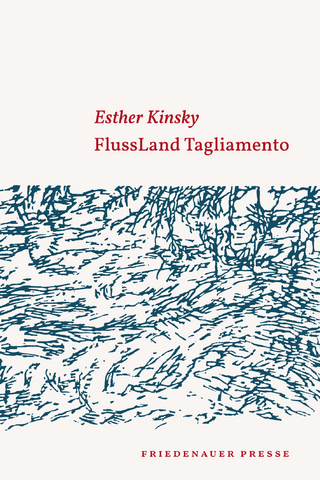
The Other World of Richard Wright
Perspectives on His Haiku
Seiten
2011
University Press of Mississippi (Verlag)
978-1-61703-022-2 (ISBN)
University Press of Mississippi (Verlag)
978-1-61703-022-2 (ISBN)
Reveals Richard Wright's poetic vision toward the human world. These essays open up a new territory in Wright studies by tracing the development of Wright's aesthetic and its relationship to African and Japanese cultures.
The Other World of Richard Wright: Perspectives on His Haiku reveals Richard Wright's poetic vision toward the human world. Through the minimal form of haiku, Wright (1908-1960) found his poetic connection to nature. This sensibility displays not only the change in him as a writer but also the tenderness in him as a human being.These essays open up a new territory in Wright studies by tracing the development of Wright's aesthetic and its relationship to African and Japanese cultures. The book tells how haiku offered a therapeutic outlet for Wright in his final two years of life in Paris, explores the influence of Zen Buddhism on Wright's haiku, and delivers a thematic analysis of Wright's haiku. The collection also gives us a focused examination of how Wright's haiku reveal a conflict between nature and culture, how women are exploited for labor and sex by the culture at-large, and how the South in Wright's haiku symbolizes a place full of dreams, memories, hardships, and loneliness with his images of cotton, freight trains, croaking frogs, magnolia trees, and hog-killing.
The Other World of Richard Wright: Perspectives on His Haiku reveals Richard Wright's poetic vision toward the human world. Through the minimal form of haiku, Wright (1908-1960) found his poetic connection to nature. This sensibility displays not only the change in him as a writer but also the tenderness in him as a human being.These essays open up a new territory in Wright studies by tracing the development of Wright's aesthetic and its relationship to African and Japanese cultures. The book tells how haiku offered a therapeutic outlet for Wright in his final two years of life in Paris, explores the influence of Zen Buddhism on Wright's haiku, and delivers a thematic analysis of Wright's haiku. The collection also gives us a focused examination of how Wright's haiku reveal a conflict between nature and culture, how women are exploited for labor and sex by the culture at-large, and how the South in Wright's haiku symbolizes a place full of dreams, memories, hardships, and loneliness with his images of cotton, freight trains, croaking frogs, magnolia trees, and hog-killing.
John Zheng is professor and chair of English at Mississippi Valley State University. He is the editor of Valley Voices: A Literary Review. A noted Wright scholar, Zheng's work on the writer has appeared in the Explicator, Southern Quarterly, Modern Haiku, Frogpond, Notes on Contemporary Literature, and other periodicals.
| Erscheint lt. Verlag | 30.4.2011 |
|---|---|
| Reihe/Serie | Margaret Walker Alexander Series in African American Studies |
| Verlagsort | Jackson |
| Sprache | englisch |
| Maße | 152 x 229 mm |
| Themenwelt | Literatur ► Essays / Feuilleton |
| Literatur ► Lyrik / Dramatik ► Lyrik / Gedichte | |
| Geisteswissenschaften ► Sprach- / Literaturwissenschaft ► Anglistik / Amerikanistik | |
| Geisteswissenschaften ► Sprach- / Literaturwissenschaft ► Literaturwissenschaft | |
| Sozialwissenschaften ► Soziologie | |
| ISBN-10 | 1-61703-022-8 / 1617030228 |
| ISBN-13 | 978-1-61703-022-2 / 9781617030222 |
| Zustand | Neuware |
| Haben Sie eine Frage zum Produkt? |
Mehr entdecken
aus dem Bereich
aus dem Bereich
Deutsche Gedichte aus zwölf Jahrhunderten
Buch | Hardcover (2023)
C.H.Beck (Verlag)
28,00 €


